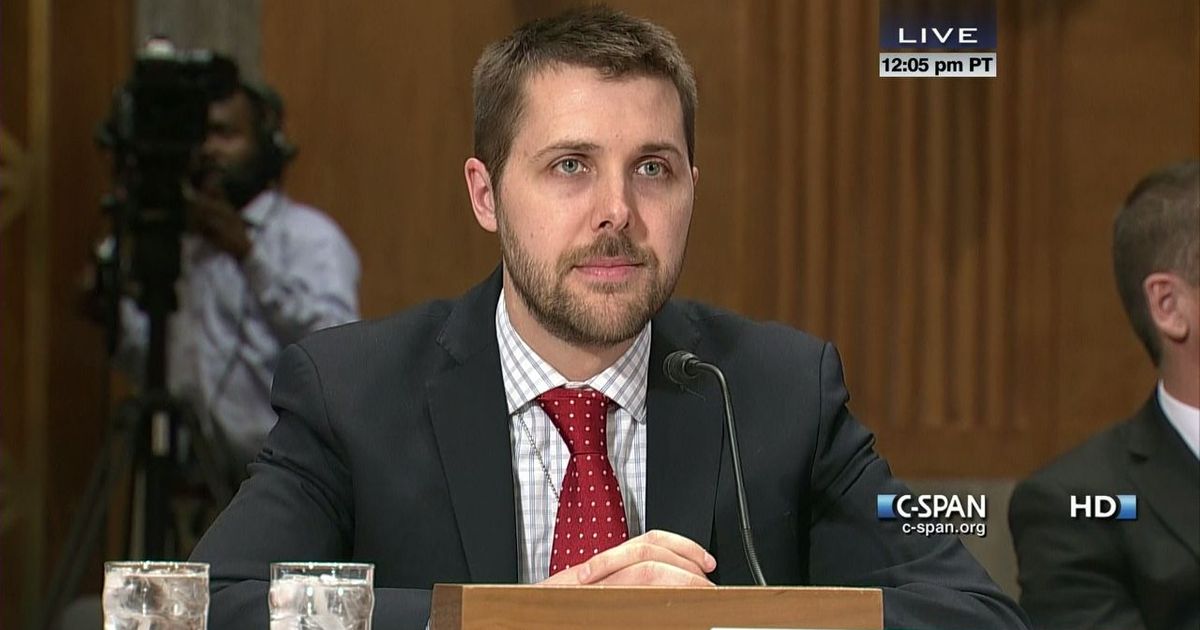Read the Revolving Door Project’s brief on Brian Deese.
From 2008 – 2016, Brian Deese rose from a law student to a Presidential advisor on fiscal policy, climate change, and trade. Deese’s personal geniality and intelligence drove this rise — but a review of his policy positions reveals a history of backing wildly incorrect conventional wisdom convivial to the powers that be.
We agree with the Action Center on Race and the Economy that Brian Deese should not be appointed to lead the National Economic Council, or indeed any other economic or regulatory policy position. He has a demonstrated track record of furthering dangerously concentrated private financial power, supporting anti-factual austerity policies, tolerating and abetting climate change, and generally refusing to stand up to powerful interests when the situation demands it.
FINANCIAL STABILITY
Deese is currently a public spokesman for BlackRock, the world’s largest asset manager which has at least a 5 percent stake in more than 97.5 percent of the global S&P 500. Deese is especially involved with BlackRock’s efforts to “greenwash” its status as the world’s largest investor in fossil fuels — Deese claims these criticisms are unfair since “we [BlackRock] own the market across the spectrum,” including in green energy.
This supposed defense of the firm points to the fact that BlackRock is, in fact, “the new money trust” in the words of the American Economic Liberties Project: a titanic financial monopoly that is too big to fail, too big to manage, and too big to exist. The Dodd-Frank Act, which regulated Too Big To Fail institutions through a new Financial Stability Oversight Council, was one of the Obama administration’s signature achievements. BlackRock CEO Larry Fink is well aware of the danger his firm’s existence poses to global economic stability, and that a functioning FSOC and Dodd-Frank regime would heavily target BlackRock.
For that reason, since at least as far back as 2015 he has hired a shadow cabinet of well-liked Democratic operatives who could populate a Hillary Clinton or Joe Biden Treasury and prevent BlackRock from being designated “systemically important.” Hiring Deese to a public-facing executive role is part and parcel of this strategy. Deese’s willingness to participate in it undermines his commitment to the Obama financial reform agenda and leaves him unable to independently assess crucial issues of global economic security.
AUSTERITY
Today, economists agree that measures to cut public spending in the middle of the Great Recession greatly lengthened the recovery, and disproportionately harmed Black Americans whose incomes have still not recovered to pre-2008 levels. The case for austerity has been debunked in theory and practice for well over a decade.
Brian Deese both consistently advocated for austerity measures since 2007, and played an active role in enacting an austerian agenda as deputy director of the Office of Management and Budget. In his confirmation hearing for that job, Deese voiced support for so-called “entitlement reform” and even means-testing Medicare. Today, Deese gives paid speeches to trade groups on “how the budget process can actually be used to reform entitlements and the tax code.”
CLIMATE CHANGE
Deese is perhaps best known for helping broker the Paris Climate Accords, but don’t think this means he will stand up to fossil fuel interests. He is a veteran of the “all of the above” energy policy — the belief that the United States should pursue drilling, burning, and exporting oil and gas even as it transitions to green energy.
Deese defended fracking on public lands, applauded the U.S.’s growing production of fossil fuels in 2015, and incredibly claimed that the Trans-Pacific Partnership was “a once-in-a-generation chance to protect our oceans, wildlife, and the environment.” This despite the fact that the TPP would have explicitly forced automatic approval of all American LNG exports, allowed ISDS cases to override any member-state’s environmental laws, and shifted ever-more American manufacturing to other, high-carbon countries. Deese had never held an environmental policy job before taking on the issue in 2015.
Choosing to work for BlackRock is inconsistent with demonstrating advancement in any of these areas.

